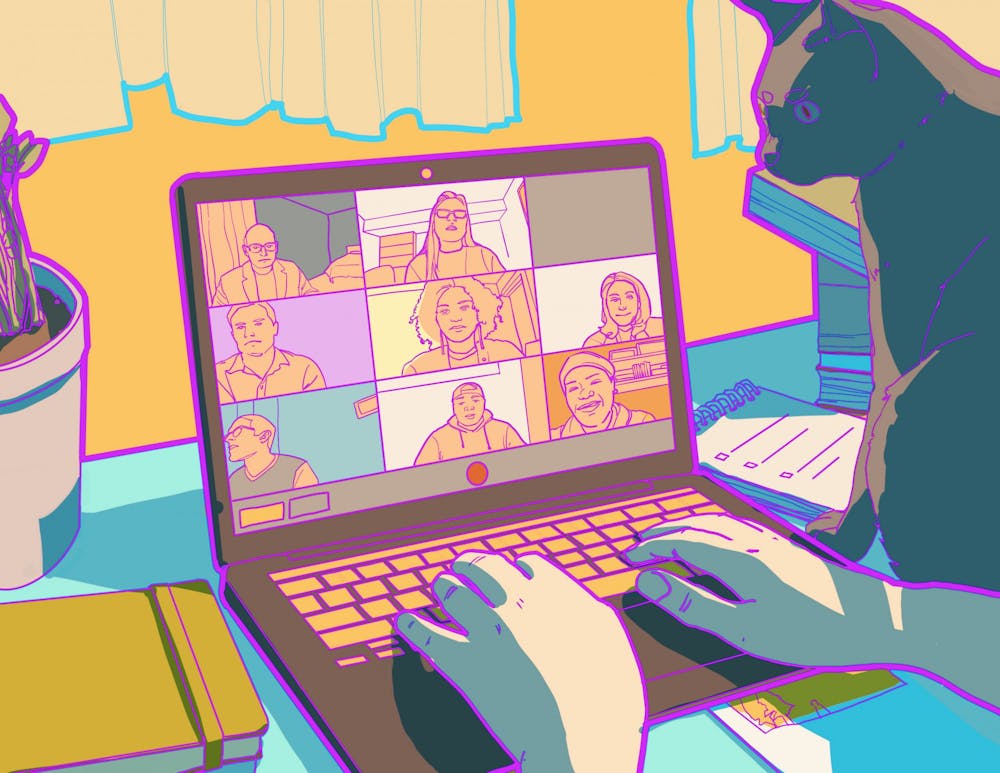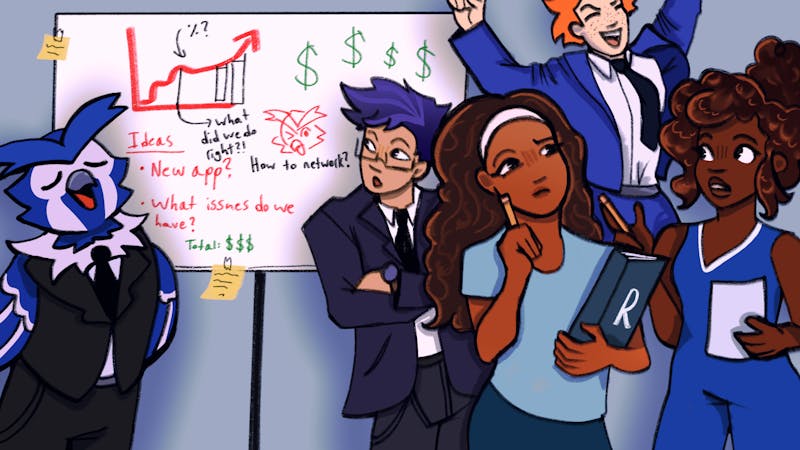Back to remote learning: Advice from a fellow Rice student

Throughout the winter recess, the prospect of another semester of online learning led me to continuously hit the Gmail refresh button, waiting for a sign of what my academic future would hold. Peer institutions, one by one, enrolled themselves in Zoom University, and Rice inevitably followed. Then I realized I needed to buy the blue light glasses that had been sitting in my Amazon cart for six months.
We all know by now that online learning has unique challenges. However, we can address these challenges through specific lifestyle changes and study habits. (The random noise mishaps on Zoom can be avoided, for instance: remember to check whether your microphone is off when someone else is speaking!)
Keep in touch with the Rice community.
College is not just about problem sets and classes; there is an integral social component, which remote learning can strongly affect. In your free time, participate in video calls with affinity groups or clubs, talk to friends while out on a walk or Facetime from your living room. In a time of virtual learning, it’s important to feel socially connected for physical and emotional wellbeing.
Practice self-control.
There should be an award for anyone who can get through a Zoom lecture without turning to Buzzfeed quizzes or coolmathgames.com (Papa’s Donuteria FTW). Luckily, there are browser extensions for those of us who are easily distracted. For example, you can download the free extension SelfControl, which blocks websites, videos, and links of your choice for a selected period of time.
Dress to impress.
It is easy to log into Zoom meetings dressed in last night’s pajamas, from the comfort of your bed. However, it is crucial to emulate an in-person learning environment to make the most of online classes. One easy way to feel like you’re really in class is to dress the part. Would you wear said outfit in a sociology lecture at Kraft Hall? If yes, the ‘fit is great. If not, consider something else.
Create a routine.
Establishing a routine helps with stress management and can ease the adjustment back into college life when you return to in-person studies. Think about your usual activities on campus and schedule similar ones into your routine. If you cherish your morning Coffeehouse trip, make time to go to a local coffee shop or whip up an iced Nutty Bee at home.
Prioritize movement and getting outdoors.
During remote learning, movement must be intentional. Scheduling a regular walk or a workout is also a great way to establish a routine. On campus, we get our steps on the trek from the BioScience Research Collaborative to Keck Hall or on a 10 p.m. run to The Hoot. It’s easy to spend the whole day in your room if you don’t have to leave for class. Walking is a great way to take a break and clear your mind so that you are calm and collected when attending Zoom lectures and completing assignments. Listen to a podcast, a weirdly specific titled Spotify playlist or a new album while roaming around the neighborhood.
Make class group chats.
At the end of the first meeting of a course, share a link to a GroupMe group, or join one if someone else does. A class group chat is a space for students to discuss various assignments, send Quizlet links, ask questions and provide insight on class material. Collaboration is a crucial aspect of Rice’s academic culture, and we shouldn’t have to sacrifice it with remote learning. You can also reach out to people you know in your classes to create study groups or go over readings on video calls.
Ask for help.
There are resources available remotely to help with the social, academic or emotional problems that can accompany remote learning. If you are struggling with a specific class, reach out to academic fellows, TAs or your professors. If you are a new student with little experience with online college-level courses, reach out to your Orientation Week advisors or other upperclassmen. The Rice University Wellness and Counseling Center offers remote services to help those struggling with their wellbeing. The distance between students and the resources of Rice’s campus shouldn’t stop anyone from getting needed help.
More from The Rice Thresher


Sree’s Tiffin feeds a community of cravings
Of all the common sicknesses Rice undergraduate students face, none is more widespread than homesickness. Trisha Rangi said she understands what it’s like to miss things that feel like home, and she decided to do something about it.

New student center to ‘complete’ central quad
Breezeways, arches and outdoor seating will abound at the Moody Center Complex for Student Life set to break ground May 8. The 75,000-square-foot complex was designed by architecture firm Olson Kundig and has an expected completion date of fall 2027.

Please note All comments are eligible for publication by The Rice Thresher.